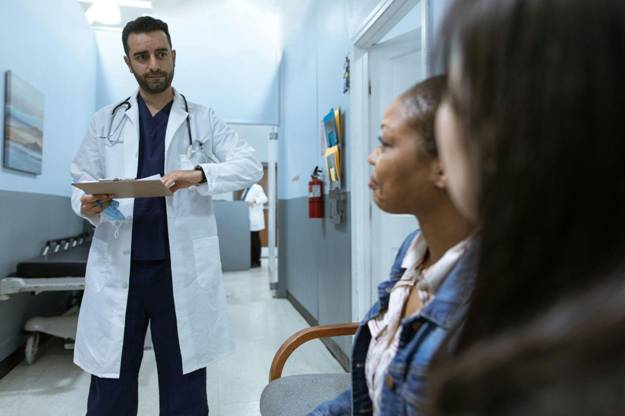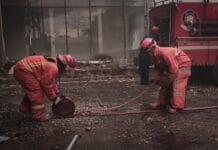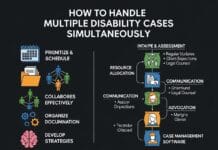There’s something powerful about watching someone grow into a trusted professional. It’s not about titles or job promotions. It’s about confidence, care, and skill coming together. In the healthcare world, this growth often begins in training programs. Not just any training—but one that teaches both hands-on work and human connection.
This is especially true for future radiation therapists. These professionals step into emotional, high-pressure spaces every day. They work closely with patients. They also manage complex machines. Their work matters. It starts with strong training. That’s where courses in radiation therapy come in.

Starting in the Right Place
Radiation therapy is more than pressing buttons or reading screens. It demands accuracy. It requires emotional awareness. Patients are scared, often in pain. Therapists must be calm. They must stay focused.
In radiation therapy programs, students get this experience early. They talk to patients. They practice safety. They learn how to support people during hard moments. This kind of training builds more than technical skill. It builds trust.
That trust matters later. When real patients are counting on you, you need to be ready. That starts in classrooms and labs that feel real from day one.
Why Technical Learning Builds Confidence
Students in this field want more than theory. They want to practice. They want to learn by doing. That’s why technical programs are a good fit. They help students jump in fast. No long wait. No guessing.
Courses in radiation therapy offer this kind of training. Students learn how to operate real treatment machines. They follow safety steps. They understand how to deliver precise care. Every lesson builds a skill. Every skill builds confidence.
That confidence grows over time. It shows up in patient care. It shows up in team meetings. And it helps students grow into strong professionals.
Learning to Lead Through Care
Radiation therapists don’t just treat disease. They support people. They sit beside patients who are afraid. They explain what will happen. They listen without rushing. That takes empathy. It takes patience.
In training programs, these soft skills are part of the process. Students learn how to speak clearly. They learn when to stay quiet. They notice small things—like a shift in tone or a worried look. These moments matter.
Great leaders often start here. Not in boardrooms. But in quiet patient rooms. In short talks that ease fear. In small choices that build trust. These are the skills that carry forward into leadership later on.
Mentorship Makes the Difference
Many professionals remember someone who helped them early on. A mentor. A teacher. A supervisor. Someone who showed them how to improve. Someone who believed in them.
Mentorship happens often in clinical training. Students watch experienced therapists at work. They see how problems get solved. They ask questions. They try, fail, and try again.
These lessons stick. They shape how students think. Over time, they start to lead by example. Just like their mentors did. That’s how growth happens. Slowly. One interaction at a time.
Technology Training Is a Must
Radiation therapists work with some of the most advanced tools in healthcare. From linear accelerators to imaging software, the tech keeps evolving. Students must stay sharp.
That’s why early exposure matters. Courses in radiation therapy prepare students for these systems. They learn how machines work. They learn how to spot errors. They know when to speak up if something feels wrong.
This technical training isn’t just for show. It’s real-world preparation. It helps students build the balance between trusting tech and trusting themselves. That kind of awareness is key in every treatment room.
Confidence Grows Over Time
Leadership doesn’t begin with a job title. It begins with action. It starts the moment someone chooses to do their best—even when no one is watching.
Confidence builds in small steps. Mastering a skill. Calming a nervous patient. Fixing a machine glitch without panic. Each moment adds up.
Radiation therapists deal with stress often. But those who train well, and learn from experience, don’t break under pressure. They become the people others rely on.
Shaping Future Healthcare Teams
Every healthcare team needs people who care deeply. People who listen. People who take their time doing things the right way. That includes radiation therapists.
The best programs teach more than protocols. They teach students how to be steady. How to work with others. How to adapt when things go wrong.
Courses in radiation therapy create space for this kind of learning. They mix hands-on training with patient care. They encourage curiosity and teamwork. These programs shape people who go on to make a real difference.
Radiation therapy teams rely on trust. That trust is earned early. It grows through good habits, honest effort, and respect. And when students carry that into their careers, they lift up everyone around them.

Conclusion
The next generation of radiation therapists is already taking shape. They are learning the tools. They are finding their voices. They are building confidence.
It all starts in the right program. One that offers hands-on training, emotional growth, and room to lead. One that blends skill with heart. That’s what makes a difference—not just in one career, but in every life touched by it.





